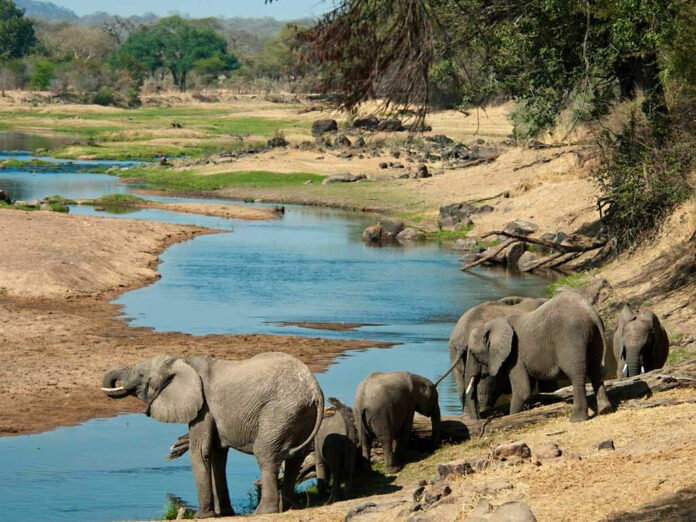Controversial Chobe lodge construction put on hold by Botswana’s government
As first appeared in Sunday Standard in Botswana, here. Written by Thobo Motlhoka.
March 7 2022
Conservationists raised alarm last year saying eight lodges would damage ecosystem and tourism value
Chobe National Park is divided into four different areas, each with distinct geographical landscape. Image by Sunday Standard.
The Botswana government has suspended its request for Expression of Interest (EOI) for construction of lodges inside the Chobe National Park (CNP). The Minister of Environment and Tourism Philda Kereng confirmed the suspension to parliament recently saying the process has only gone up to the evaluation stage.
“Before that could be concluded, there were concerns raised by various interest groups and members of the community in Chobe on the proposed use of the Park. In view of this, the EOI has since been put in abeyance to accommodate concerns raised by the industry.”
She said the EOI process cannot be concluded until the concerns are addressed. Member of Parliament (MP) for Lobatse Dr. Thapelo Matsheka had asked the Minister to appraise the House on the progress since the issuance of an invitation for EOIs for the development of eight safari lodges along the Chobe River Front inside the park.
The decision to invite interest for the construction of the lodges was met with widespread condemnation from conservationists, local community and businesses in the Chobe region. Some raised concerns about whether political and personal interests had prevailed over environmental concerns.
It has also raised more questions about the government’s commitment to wildlife conservation. In 2018 the Department of Environmental Affairs turned down a proposal for an elephant orphan sanctuary that was proposed in the Chobe National Park on account of environmental consideration.
It was also then that the government turned down a request by Botswana’s telecommunications regulator to erect a communications tower, citing environmental concerns. The developments are seen as a threat to the very existence of the Park. They are seen as likely to have devastating effects on the Park’s diverse ecosystem. But those against the developments should not rush to pop the champagne yet.
“As of now, there is no change to the planned development,” the Tourism Minister said.
“Internal Consultations are still ongoing on the proposed development. I cannot state with any degree of certainty as to how the outcome would be at the end of the consultative process. I wish to make it clear,” she said, “that my Ministry has committed to enabling citizens to actively participate in the tourism industry, and we will continue to pursue this policy stance.”
CNP is one of the best wildlife parks in the world largely because of its biodiversity which has remained largely untouched. It has become a true wildlife paradise that has mesmerised tourists from across the globe. It is extremely lush because of the many waterways and the main Chobe River which flows through the park and draws countless animal species. Located on the border line between Botswana and Namibia, the Park is accessible by boat and driving safaris during the day from dawn till dusk providing excellent photographic experiences.
Rampant poaching on the Namibian side has turned CNP into a safe haven for wildlife. Increased activity within the park may have a negative impact on the movement of wildlife within the park. There is already a safari lodge, Chobe Game Lodge, inside the park.
“Even the one existing facility within the park is too much,” a safari guide told this publication.
This article is reproduced here as part of the African Conservation Journalism Programme, funded in Angola, Botswana, Mozambique, and Zimbabwe by USAID’s VukaNow: Activity. Implemented by the international conservation organisation Space for Giants, it aims to expand the reach of conservation and environmental journalism in Africa, and bring more African voices into the international conservation debate. Written articles from the Mozambican and Angolan cohorts are translated from Portuguese. Broadcast stories remain in the original language.

